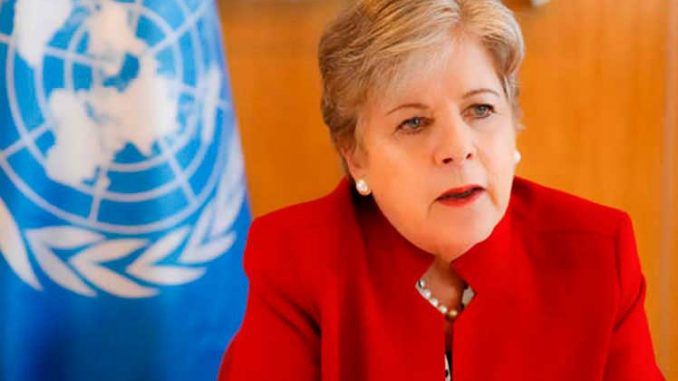
(Prensa Latina) The executive secretary of the Economic Commission for Latin America and the Caribbean (ECLAC), Alicia Bárcena, demanded today in Panama the end of the deep global asymmetries in the face of Covid-19.
In a keynote videoconference, which marked the inauguration in this capital of the 36th Ordinary Assembly of the Latin American and Caribbean Parliament (Parlatino), Bárcena also urged a common social pact to overcome the health emergency.
She indicated in her report that inequity is unacceptable, in a continent where in 2021, only in seven countries, 11 percent of the Gross Domestic Product of the region is concentrated in the hands of 104 persons.
Regarding the impact of the pandemic, she said that since 2020 extreme poverty has increased, school dropouts, unemployment -particularly among women- and affected the quality of teaching, to give rise to the challenge of rescuing the so-called lost generation, due to restrictions and inequities in Internet access, among other elements.
The illness also showed weaknesses in the institutions and the fragility of economies, in addition to the collapse of some health systems, she added, citing official statistics of ECLAC.
In her opinion, the slowdown caused by the disease affected everyone, but much more, households of poor families. In this sense, she pointed out that inequity in the immunization programs and distribution of anti-Covid-19 vaccines is just a sample.
Some 26 of 33 countries in the region, she said, have not been able to inoculate 70 percent of their population against the disease, which is alarming and needs international solidarity, she remarked.
Latin America and the Caribbean, she specified, with 8.4 percent of the world population, registers 30 percent of the deceased by Covid19.
The upward trend in inflation, in particular food and energy, she asserted, will continue this year, implying damaging effects on the labor market, more poverty and inequality for the sixth year in a row.
However, she estimated that the pandemic could become a historic opportunity for a new social, integration pact, achieve real cooperation and revitalize multilateralism, spheres in which the Community of Latin American and Caribbean States (CELAC) is at the forefront.
In response to Bárcena’s appearance, Chilean senator Jorge Pizarro, currently president of Parlatino, pointed out that the agenda and many model laws of the regional legislature and national parliaments emphasize the alerts addressed by the ECLAC executive secretary .
He also mentioned irregular migration as another phenomenon that affects not only countries of origin, transit or destination, but is also an economic and human rights problem requiring regional cooperation.
Pizarro also thanked his current work team for the work carried out during his mandate, which ends this Friday.
The XXXVI Ordinary Assembly of the Parlatino, attended by 119 parliamentarians and representatives from 19 countries, will close its first deliberations with the election of the new authorities of the Board of Directors and the Advisory Council for the period 2022-2024.

Be the first to comment